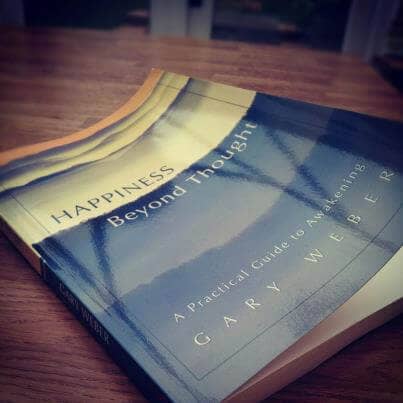 So you want to know how to journal for self improvement?
So you want to know how to journal for self improvement?
My compliments.
The world needs more people like you.
I don’t throw around praise lightly either, so please don’t feel like I’m trying to stroke your ego.
Far from it.
In fact, some of the suggestions you’re above to discover on this page might rub you the wrong way.
And that’s because a lot of people out there give poor journaling advice.
Especially for self help.
I mean…
They don’t even discuss what the “self” is in the first place.
And that can lead you down a track of disaster so deadly, you wind up trapping yourself in precisely the prison you’re trying to escape.
So if you’re ready for the low-down from a self improvement journaler with decades of experience, let’s dive in!
What is Journaling?
Sounds like a silly question, but here’s the reality:
If you don’t pause on questions like these, you miss a huge opportunity.
So let’s look at the word first and foremost.
Do you notice anything?
It didn’t leap out at me at first, but “journaling” carries the word “journey” in it.
And journey means to travel from one place to another. It comes from Old French, “journée” or “a day’s work or travel.”
So the first journaling exercise you can try is to get out a journal and answer this question:
What transformation do you want to happen as a result of using your journal for self improvement?
Now then, let’s look at this prickly question… what is this thing called the “self” anyhow?
What is “Self” Improvement?
Can you really improve yourself?
The answer is trickier than it seems. And well worth exploring.
For example, many studies have shown that our sense of self is an illusion. If you add more nuance to the noise of this question, what people really mean is that your “self” is constantly changing.
And because change is the only constant, people say there is no self. If there is no self and the target is always moving, there’s nothing you can improve, right?
Not exactly.
There is a pattern there. And that pattern is composed of energies. You happen to be the observer of those patterns and the recipient of those energies.
As Gary Weber explains in Happiness Beyond Thought, the number one portal to change is capturing an image of the pattern and then interacting with it.
Journaling about what you eat is one powerful path, and that’s why I shared a journal excerpt from my adventure (and misadventure) with the carnivore diet.
This notion of interacting with our patterns and energies circles us back to the initial exercise I suggested. Write down and answer this question:
What transformation do you want to happen as a result of using your journal for self improvement?
Topics To Journal About For Self Improvement
Now that we’ve gotten nerdy about what journaling is and covered something about the nature of the self, you might be wondering…
What exactly should I journal about?
That’s a good question. Here are some suggestions. They’re all battle tested from my long experiences with different approaches to the art, craft and science of journaling.
One: Journal About Your Goals
We’ve already covered the goal of transformation as such, but we can get much more specific about what we want.
The trick is to make sure you really want the outcome.
A simple way to do this is to create two columns. One for 5 reasons why you want a particular outcome, another for 5 reasons you might not want it.
This quick exercise will reveal so much to you about the nature of your thinking. Often we don’t have nearly enough reasons to justify undertaking various goals.
And that means we can help ourselves dodge a lot of bullets.
Two: Journal About Your Dreams
Few things have rewarded me as much as keeping track of my dreams.
Sure, there’s often a lot of mumbo jumbo in the scenarios, but you can think of the material like Tarot cards. You simply interpret what the dream material might mean.
Writing about your dreams also gives you great memory exercise.
If you need help getting started because you can’t recall anything, here’s information on how to remember your dreams.
Three: Overwhelm
When you feel overwhelmed, you can tolerate it, or…
You can “talk” it out with your journal.
Describing the situation in words gives you meta-cognitive insight without having to go to a therapist.
Just be sure not to judge yourself.
Or if you do, underline, circle or highlight any statements that have any tone of self-judgment in them.
Then journal further about why you think you use such framing. You can also ask and journal about the history that might have conditioned such language into your system.
Four: Personal History
You don’t have to write a memoir in order to benefit from going through your life.
To journal in a structured way, you can impose certain constraints on the project.
For example, dedicate one page to each grade in school.
I tried this recently and was surprised by how much stuff came up.
For example, I started remembering details about my friend Ryan in grade one, and really fun lunchtime adventures in grade four with another friend named Eric.
Sure, these exercises often bring up simple bits of nostalgia. But it gives you an opportunity to honor the individuals and community members who helped you become the person (or set of patterns) you are today.
Personally, when I journaled about my grade four friend Eric, I felt so grateful.
See, he tragically died during high school in a skateboarding accident. Not only did his crazy skateboard antics come to mind (they put most of us in his friendship circle to shame), but I also felt gratitude for his mom. She went beyond the call of duty by making tomato soup and grilled cheese sandwiches for so many of us.
During my chaotic childhood, I often had to throw away rancid lunches from our “babysitter” that hurt my stomach. Eric’s mom was like an angel sent from heaven, and these memories are incredible to revisit because they reconnect me to some very simple, but special moments of peace during a turbulent youth.
Five: Gratitude Journaling
Journaling can serve as a form of contemplation, which is known to provide tremendous mental benefits.
In my practice, I make gratitude journaling as simple as a list. Usually I write out 10 items.
I’m always amazed by how simple the items are, but how profoundly important they are to my survival and daily comfort.
How often do you take a moment to reflect on your gratitude for things like water, food, shelter and the good things in your surrounding community?
Try it for 90 days and I bet you’ll feel so much better.
Six: Positive Affirmations
I spent five years writing out the same positive affirmation.
Even though it only took me a few months to achieve my dream of supporting myself as an author, I kept doing it because I knew I could deepen the psychological benefits.
For best results, combine written affirmations with a treasure map. Here’s a video tutorial on how these journaling alternatives work:
Seven: Daily Routine Discipline
Let’s face it:
Getting big things done is hard.
I’ve used journaling for accountability and tracking my progress for years.
The Freedom Journal is one of my favorite tools. It’s very flexible and even works for targets like language learning.
Eight: Mind Mapping
You don’t have to journal exclusively in prose. You can also explore techniques like mind mapping.
Here are three ways I use mind mapping, especially when I need a confidence boost.
Nine: Developing Your Philosophy
I’m currently preparing to write a book of philosophy. I journal constantly about topics related to the Stoic Virtues, and to a certain extent, my dissatisfaction with them.
Journaling has also helped me establish exactly how my values are defined.
Do you need a personal philosophy?
Not necessarily, but there are many reasons why philosophy is important.
The more personal the better.
Ten: Dealing With Obstacles
No one accomplishes anything big without running into issues.
Rather than react, it’s a good idea to use your journal to work out:
- A definition of the obstacle
- Alternative ways to handle it
- Different resources you can draw upon
It’s an ancient technique, but sometimes I use ars combinatoria to help. You can easily draw the wheel involved in your journal and draw many possible solutions from it.
As Ryan Holiday points out in The Obstacle is the Way, obstacles can help you see things for what they are provided you take the time to examine them.
Journaling is the perfect way to do that.
Where Should You Store Your ‘Deep Writing’ About Life?
Over the years, many people have asked me about what kind of journal they should use.
I guess it’s my Canadian background that has caused me to use the word “journal,” when often what I mean is simply “notebook.”
Personally, I keep multiple journals simultaneously. At the moment I have my:
- Pocket journal I carry everywhere
- Snapshot journal for daily descriptive journaling
- Music journal for research and practice accountability
- Contemplation diary related to my meditation and dreaming practice
- Slush pile journal (for whatever I’m working on that doesn’t need organization)
I know that a lot of people like to use digital apps for journaling.
I’m afraid that I can’t speak to that because I don’t use any.
That said, my writing career has long involved sending myself emails, using Google docs on a variety of computers and composing entire books on my phone.
But typically, I think any old paper notebook will do. The only exception is when I’ve splurged on The Freedom Journal. It was well worth it, but the core idea is easy to reproduce in any journal that collects pages together.
For more on how I’ve used journaling, you might want to check out my book, The Victorious Mind. Because journaling has helped me so much, I devoted a lot of space to the topic in that book, especially when it comes to improving memory.
Speaking of which, I’d like to invite you to experience yet another way to journal, one that happens entirely inside your mind. Get my Free Memory Improvement Kit to learn more about how it works:
So what do you say?
Are you ready to start journaling for self improvement in multiple ways?
Dive in, enjoy and above all, experiment. There are many ways to journal, and one is the most dangerous number. It leads to perfectionism.
But when you experiment with multiple kinds of journaling, you’ll find that you have progress on tap.
Related Posts
- The Cosmic Journal: How To Use Randomness For Self-Realization
The Cosmic Journal combines writing prompts with art and activities for self-growth. Yanik Silver shows…
- Memory Improvement Techniques For Kids
You're never too young to get started with memory techniques
- Reach Any Memory Improvement Goal With These Atomic Habits From James Clear
James Clear shares with us the Atomic Habits you can use for memory improvement, your…








10 Responses
I’m so impressed by your writing style. So elegant, so clear.
Thanks so much, Charl.
Do you journal yourself?
So enjoyed your voice and insight. You seen down to Earth, and yet so very set apart from the majority of folks we encounter each day. Refreshing.
Thanks so much for your kind words about my writing. Happy journaling!
Hi Anthony, thank you so much for all these great ideas about journaling! I do not know what I was searching for but the title of your article just popped up! I think this is exactly what I need at this stage in my life. On a practical note, what happens if you loose one of your “notebooks”? Has it happened to you? I wouldn’t feel at ease knowing that a stranger is reading it.
Glad you found this useful.
I’ve actually thrown out quite a few journals over the years.
But I’ve also kept dozens. I date them and then organize them chronologically in boxes.
If you get more into the memory techniques I discuss on this site, you can use a Mnemonic Calendar to help remember individual days and even hours if you want.
Thank you for your article. It helped me better understand the purpose of journaling. It also gave me some good ideas. Thank you.
Thanks for stopping by, Mike. I’m glad this post was useful for you!
Hi Anthony, Thank you so much sharing this article! It was exactly what I needed to read as I struggle with creating consistency continuity and more consciousness for my journaling practice. I loved your clarity, perspective and expressiveness on journaling. It’s inspiring and motivating. Can you write or do a video about your routine and rituals on timing, organising and relating your different journals for self-growth. Looking forward to reading your new articles!
Thanks, Sumru.
I’ll put some thought into how a video about that might look like.
Overall, I use memorized systems and procedures more than the journals themselves to run my day.
In other words, once the journals helped with a particular kind of lifestyle design, I’ve most kept journaling mostly to document.
However, when new projects arise, I run them through a particular process which I’ll be sharing soon on my YouTube channel and will probably eventually add to this page. Please stand by and thanks again for your interest.